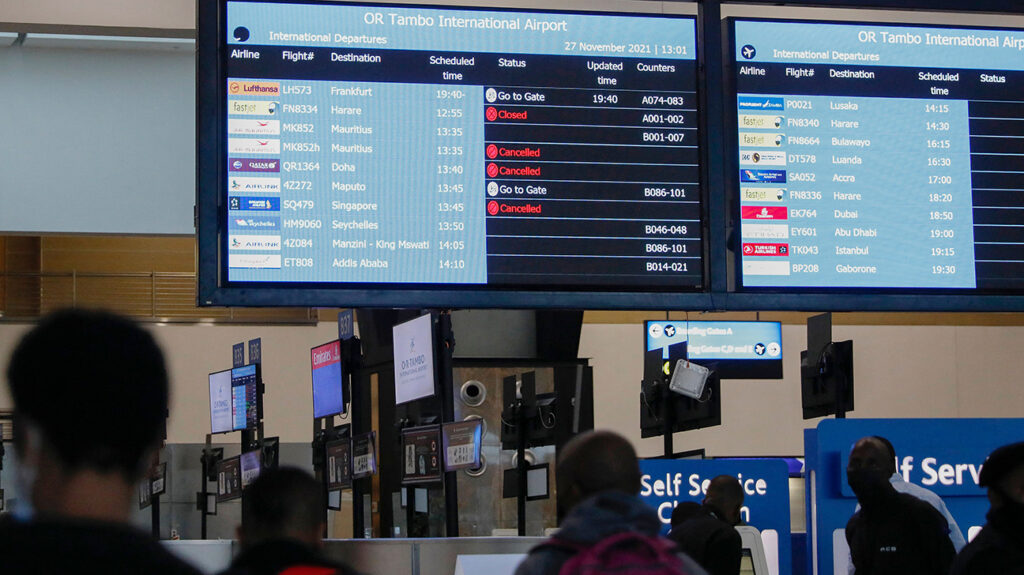The latest national accounts released by the National Bureau of Statistics (NBS) show the continuous recovery of the air transport sector from the adverse effects of the COVID19 pandemic. Air transport grew by 50.7% y/y in Q1 ’22 compared to the contraction of -11.8% recorded in Q1 ’21.
This was the second fastest-growing segment in Q1 ’22, following rail transport (124.5% y/y). We note that this is from a low base.
Given that the sector was one of the most impacted sectors during the pandemic, the easing of COVID19-related restrictions globally has contributed to its recovery. The current geopolitical crisis is weighing heavily on domestic airline operators. The Russia-Ukraine crisis has led to a surge in oil prices globally (Russia controls c.10% of the global oil supply).
This has been transmitted through higher energy, oil and gas prices, worsening the already elevated inflation in advanced and emerging economies. Following the US ban on Russian oil imports, oil prices surged above USD100 per barrel to hit their highest level since 2008. As at end-May ’22, Brent crude stood at USD122.8/b.
In Nigeria, aviation fuel is a deregulated product and as such, its price is dependent on movements in global oil price and the foreign exchange rate among others. Aviation fuel has increased from N190/litre in 2021 to N700/litre in May ‘22. The surge is placing pressure on operational costs. Based on our channel checks, aviation fuel accounted for 40% of operating cost in 2021. However, this has now risen to 95% of total operational cost.
This increase in operating cost has resulted in upticks in ticket fares across airline operators within the country and has also led to a significant decline in the frequency of domestic flights.
Based on data from the NBS “Transport Fare Watch” series, the average airfare for select routes (one-way) increased by 52.4% y/y from N36,409 (USD87) recorded in April ’21 to N55,501 (USD132) in April ’22. On a m/m basis, it rose by 18.6% from N46,810 (USD112) recorded in March ’22 to N55,501 (USD132) in April ’22.
On a zonal basis, North-Central recorded the highest average airfare (N57,552) for select routes (one-way) in April ‘22, followed by North-East (N56,800), South-South (N55,586), North-West (N54,760), South-West (N54,338), and South-East (N53,402).
To put the current strain in perspective, in May ‘22, the Airline Operators of Nigeria (AON) announced a shutdown of operations within the industry due to the price surge in aviation fuel (Jet-A1) and uptick in other operating costs. However, following discussions with government officials, AON suspended its plan to shut down operations.
Coronation Merchant Bank understand that the NNPC agreed to supply Jet A1 to marketers nominated by airline operators for three months and at a fixed price of N480/litre. However, the airlines are to apply for aviation fuel import licenses so they can import directly to reduce reliance on NNPC.
The potential impact of a prolonged Russia-Ukraine crisis is likely to stretch the current challenges for domestic airlines. Furthermore, there are limits to the cost that can be passed on to the consumers, given that inflationary pressure continuously weighs heavy on consumer pockets.
The subsidy route seems unsustainable as the FGN is currently grappling with costs associated with the ongoing fuel subsidy (PMS). Forward thinking solutions would include innovative mechanisms that can optimise operations and accommodate rising operating costs within the aviation industry.

 Billionaire Watch3 weeks ago
Billionaire Watch3 weeks ago
 Startups4 weeks ago
Startups4 weeks ago
 News4 weeks ago
News4 weeks ago
 News4 weeks ago
News4 weeks ago
 Bitcoin4 weeks ago
Bitcoin4 weeks ago
 Naira4 weeks ago
Naira4 weeks ago
 Forex3 weeks ago
Forex3 weeks ago
 Treasury Bills4 weeks ago
Treasury Bills4 weeks ago



























